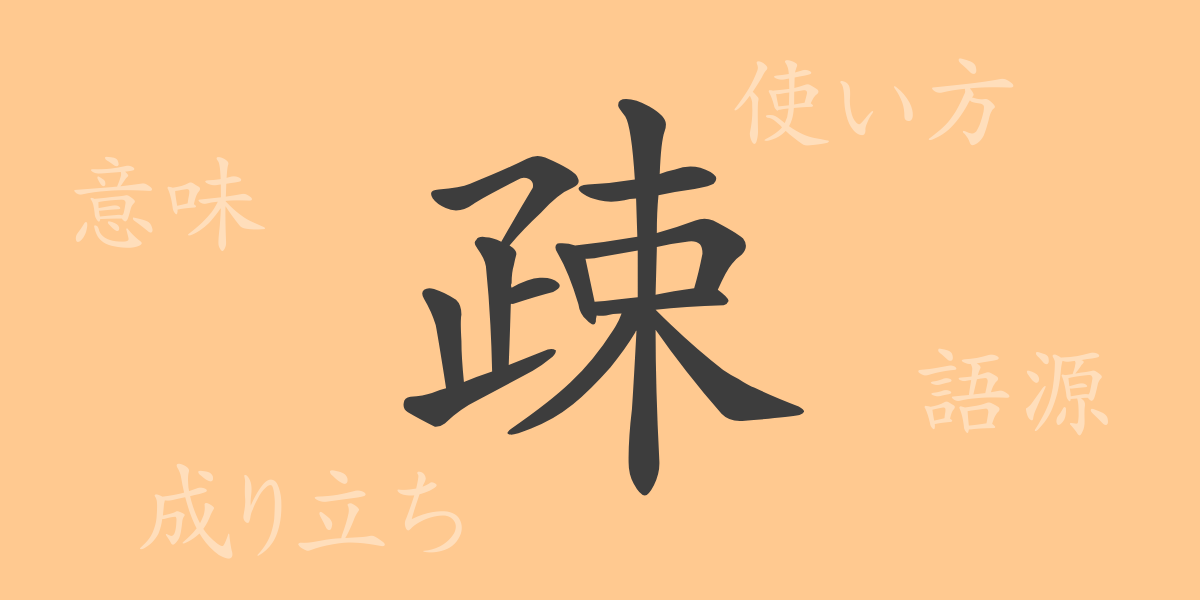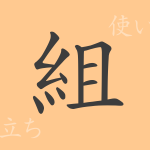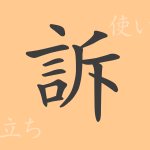In Japanese written culture, Kanji play a role far beyond mere characters. Each Kanji possesses a unique history, meaning, and beauty, enriching the expressions of the Japanese language. This article focuses on the Kanji “疎” (ソ), which may not be frequently encountered in daily life but is nonetheless an integral part of the common Kanji set in Japan. We will delve deeply into its etymology, meanings and usages, readings, stroke count, and related idioms and proverbs.
Origins of 疎 (ソ)
The Kanji “疎” (ソ), formerly also written as “疏”, combines “疋” (ヒキ) representing legs, and “田” below it. Originally, “疋” was a pictograph symbolizing sheepskin, and “田” represents rice fields. Thus, the character initially depicted the appearance of a spread-out sheepskin over fields, symbolizing scattering or sparseness, which became the basis for “疎” (ソ).
Meaning and Usage of 疎 (ソ)
“疎” (ソ) encompasses meanings such as distancing or being loosely related, as in “疎遠” (ソエン) or “疎外” (ソガイ). It can also signify neglecting something. This Kanji is used not only in the context of human relationships but also to express physical and psychological distances.
Readings, Stroke Count, and Radical of 疎 (ソ)
Let’s explore the specific details of the Kanji “疎” (ソ):
- Readings: The on’yomi (Sino-Japanese reading) is “ソ” (ソ), and the kun’yomi (native Japanese readings) include “うと.い” (ウトイ), “うと.む” (ウトム), “まば.ら” (マバラ).
- Stroke Count: A total of 12 strokes.
- Radical: The radical is “疋” (ヒキガシラ).
Idioms and Proverbs Using 疎 (ソ) and Their Meanings
There are various idioms and proverbs that include “疎” (ソ), such as:
- 疎遠 (ソエン): The state of having infrequent contact with someone previously close, leading to a diluted relationship.
- 疎外 (ソガイ): Being excluded from a group or feeling excluded.
- 疎忽 (ソコツ): Neglecting something or lacking attention.
- 疎通 (ソツウ): Smooth communication or exchange of ideas.
- 疎隔 (ソカク): Having a distance or a gap in a relationship.
Summary on 疎 (ソ)
The Kanji “疎” (ソ) is used to describe situations where relationships are tenuous or matters are neglected. Its idioms and phrases enrich the nuances of the Japanese language, playing a crucial role in expanding the breadth of expression. Understanding the meanings imbued in each Kanji leads to a deeper comprehension of Japanese, enabling more precise and emotionally rich communication.

























